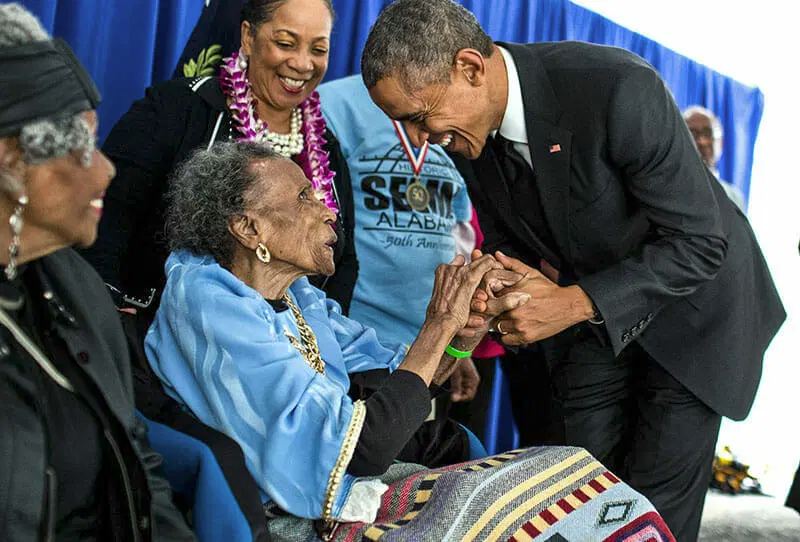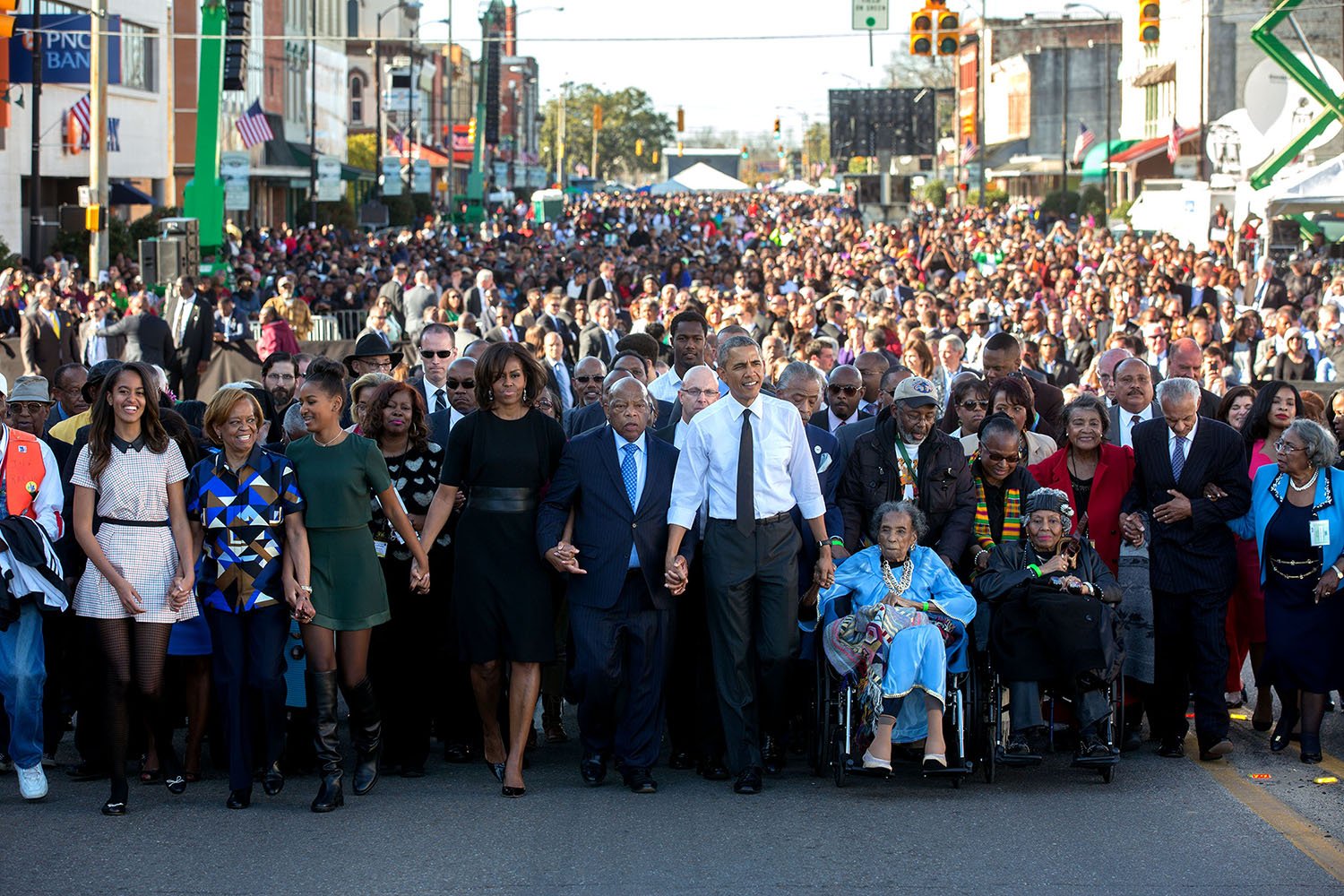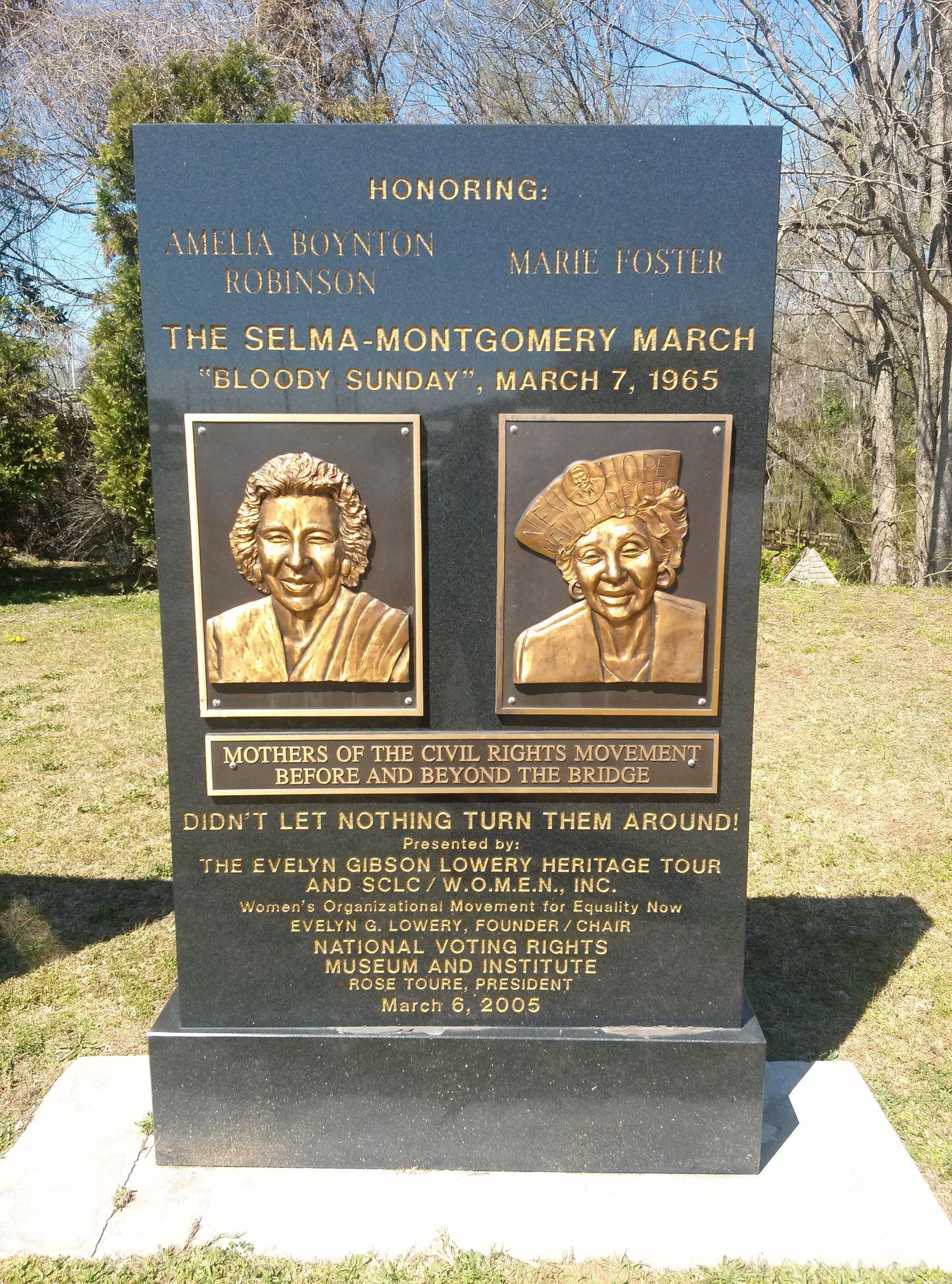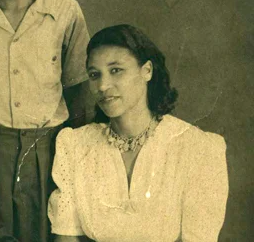Dr. Amelia Boynton Robinson
Did you know that Dr. Amelia Boynton Robinson was Rev. Ike's cousin? But more importantly, she was a pioneer in voting rights, a courageous fighter for civil rights, and a champion of human rights for all.
“Remember, this is your day and your world.” - Amelia Boynton Robinson
Early Life and Activism
Amelia was born August 18, 1911, in Savannah, Georgia to George and Anna Platts. As the parents of 10 children, George and Anna worked to instill in them the importance of church, education, and community. Amelia began her activism at the age of 9 by joining her mother Anna, a Suffragette herself, campaigning door-to-door and distributing leaflets for the Women's Suffrage Movement.
A bright and avid learner, Amelia threw herself into higher education, obtaining a home economics degree from Tuskegee University in 1927 when she was just 16. She went on to further her education at Tennessee State University, Virginia State University, and Temple University.
After teaching in Georgia for a few years, Amelia relocated to Selma, Alabama and took on the role of home demonstration agent with the U.S. Department of Agriculture. She journeyed all over rural Alabama, visiting sharecroppers and educating them on nutrition, healthcare, food preservation, and advancements in agriculture.
In the early years of her activism, Amelia established the Dallas County Voters League in 1933 where she actively organized voter registration drives for the African American communities in Selma and southern Alabama. Her initiative and drive laid the foundation that future Civil Rights leaders would later build upon.
In 1936, she married Samuel Boynton, a co-worker who shared her passion for social change. Over the next thirty years, the couple worked together to teach rural African Americans the importance of education, politics, voting, and how to purchase land. In addition to their full-time work and civil rights activism, they operated an insurance agency, a real estate office, and an employment agency – all creating jobs and serving the local African American community.
Despite Samuel's passing in 1963, Amelia continued in their shared mission to enhance the lives of African Americans in Alabama and beyond.
“A vote-less people is a hopeless people.” - Amelia Boynton Robinson
Civil Rights Movement
By 1963, Amelia was part of the "Courageous Eight," a prominent group of activists in Selma. She became chairwoman of the Dallas Voters League and was the driving force behind their voter registration campaigns. They not only registered people to vote, but they also educated them on how to vote and gave classes on basic literacy.
Inspired by her success, Amelia was encouraged to run in 1964 for a seat in Congress, becoming both the first African American woman and the first female Democratic candidate from Alabama. While Amelia didn't win the election, she received 10% of the vote, an amazing feat since only 5% of African Americans were able to vote.
Later that year, in response to proposed legislation that would prevent African Americans from voting, Amelia invited Dr. Martin Luther King, Jr. and the Southern Christian Leadership Conference to Selma to join forces. Working out of her living room, Amelia and Dr. King organized the Selma-to-Montgomery Voting Rights March, planned for March 7, 1965.
Despite immense pressure from local law enforcement, Amelia joined almost 600 peaceful protesters for the 54-mile march. As they approached the crest of the Edmund Pettus Bridge, the marchers were met with state and local police who had been granted the authority to stop the march by any means necessary by Alabama’s Governor. Tear gas and batons were used, leaving 70 people injured – 17 severely enough to be hospitalized – including Amelia. For refusing to retreat from the planned route to Montgomery, Amelia was beaten unconscious, sprayed with tear gas, and left for dead on the side of the road.
This day is now known as “Bloody Sunday.”
The attacks were filmed and photographed. That night, ABC News interrupted a much-anticipated movie premier to air the footage; over 50 million viewers were shocked and outraged at the images of Amelia and others being brutally assaulted. The next day, newspapers ran the photo of Amelia, beaten and bloodied, causing a national outcry.
“It could have killed me. It made me more determined to do everything I could to make African-Americans first-class citizens and to destroy the fear that is in our people.” - Amelia Boynton Robinson
Legacy
The events of Bloody Sunday led to President Lyndon B. Johnson signing into law the long-overdue Voting Rights Act, with Amelia attending as the guest of honor. This important piece of legislation removed state and local barriers that prevented African Americans from exercising their right to vote, as guaranteed under the 15th Amendment.
At the time of the march, only 300 African American citizens of Selma were registered to vote. After the passage of the Voting Rights Act, that number rose to over 11,000.
She didn’t stop there; even up to her death at the age of 104, Amelia continued to galvanize communities to exercise their civic power and responsibility through her work with the American Red Cross and various youth and senior organizations. Amelia gave 90+ years of service to the betterment of humanity.
In 1990, Amelia was awarded the Martin Luther King Jr. Freedom Medal and was nominated for the 2015 Presidential Medal of Freedom. And in 2005, a monument was erected near the infamous Edmund Pettus Bridge in honor of Amelia and fellow activist Marie Foster, hailing them the “Mothers of the Civil Rights Movement - Before and Beyond the Bridge.”
In 2015, the 50th anniversary of the Selma march, Amelia was honored during President Barack Obama’s State of the Union Address and then held hands with him as they crossed the Edmund Pettus Bridge.



In June of 2015, just months before her transition, Amelia was honored at United Palace House of Inspiration by her cousin Xavier Eikerenkoetter and the rest of the congregation with the Keeper of the Flame award. You can watch Amelia share her powerful life stories and hard-earned wisdom in the video below.
Image © Gregory Smith/AP
Thank you for helping keep the flame of human dignity and passing it on to us. We are made brighter by the divine light that shines within you. - The Frederick J. Eikerenkoetter Family
As Amelia’s younger cousin, Rev. Ike, had the same innate calling to improve the lives of others. While she fought on the ground with marches, campaigns, and politics, Rev. Ike focused on the spiritual and mental component - making sure everyone knew why all humans were equal and how they could assert that truth. Together, Amelia and Rev. Ike serve as formidable contributions from the Eikerenkoetter bloodline to the betterment of all humankind.
If you would like to learn more about Dr. Amelia Boynton Robinson, in her own words, look for her autobiography, “Bridge Across Jordan.” It is currently out of print, but you can still find used copies online.



